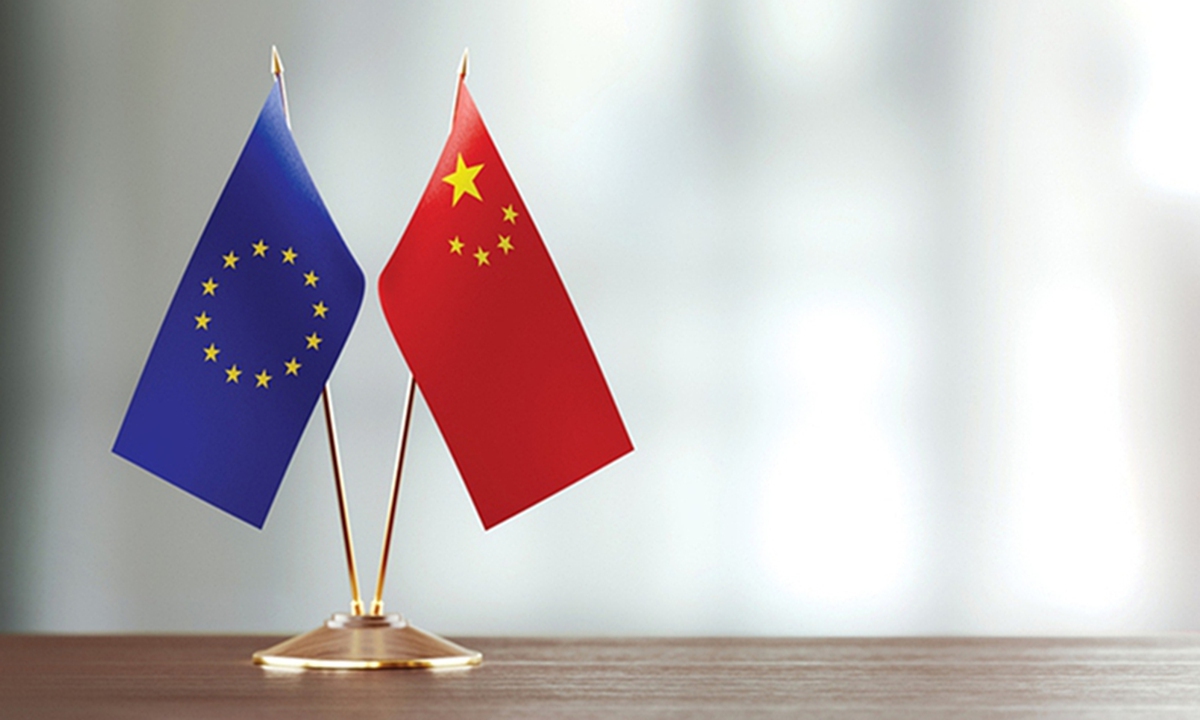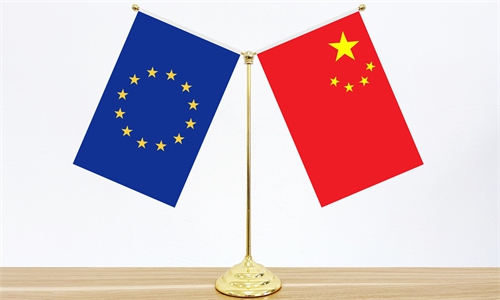EU ‘forced labor’ ban overshadows China ties, but not dominator amid fruitful cooperation

China-EU Photo: VCG
The European Parliament on Tuesday approved rules to ban goods produced by the so-called forced labor, which does not refer to but is believed to target China, thus casting a shadow on China-EU trade.
Chinese analysts said on Wednesday that such a move, despite representing some China hawks within the bloc, cannot dominate the major trend of "stabilizing China-EU relations" and will face strong opposition in member states which maintain a pragmatic China policy.
The US enacted a similar law in 2021 to ban products from Northwest China's Xinjiang Uygur Autonomous Region unless the a US company doing business with China can prove no forced labor is involved. The EU first mulled the ban in 2022.
Authorities of EU member states or the European Commission will be able to investigate suspicious goods, supply chains, and manufacturers. Preliminary investigations should be wrapped up within 30 working days, Reuters reported Tuesday.
Products "deemed to have been made using forced labor" will be banned in the EU market and shipments will be intercepted at EU borders.
The law still needs approval from EU countries to enter into force - a final step that is usually a formality which approves laws with no changes, according to Reuters. EU countries need to apply it within three years.
Zhao Junjie, a research fellow at the Chinese Academy of Social Sciences' Institute of European Studies, told the Global Times on Wednesday that the European Parliament has been playing a disruptive "clown" role in China-EU relations in recent years, but its acts cannot represent the real major trend of the bilateral ties.
As the 27-member bloc is not a monolithic whole, such rules will face great opposition in countries having close cooperation with China, Zhao said.
Citing European leaders, including Dutch Prime Minister Mark Rutte and German Chancellor Olaf Scholz, who paid visits to China one after another since the start of 2024, Zhao said that countries will act in line with their own interests rather than listen solely to the European Parliament's anti-China bugles.
Such a ban may greatly increase the production costs of European companies and ultimately, it will be enterprises and consumers in the EU who will have to foot the bill, analysts said.
The upcoming European Parliament elections are also fueling anti-China moves and rhetoric as politicians seek to expand their influence, Zhao said, predicting that more hawkish signs could emerge before the elections in June.
Zhao said that China stands ready to listen to EU countries' concerns in regard to bilateral trade and other matters, and to negotiate to push forward cooperation, but will not allow biased political slogans and groundless slander.
The EU have imposed, or are mulling to impose restrictive policies on Chinese products ranging from electric vehicles (EVs) to wind turbines to medical devices. The US-fabricated "overcapacity" fallacy has been a focal point in recent weeks.
The EU has frequently resorted to economic toolboxes and trade remedy measures, sending protectionist signals, Chinese Foreign Ministry spokesperson Wang Wenbin said at Wednesday's routine press briefing.
Wang urged the EU to fulfill its commitment to open markets and fair competition, abide by the WTO rules and stop using various excuses to unreasonably suppress Chinese companies.
Though China and Europe have competition and frictions, they can and should be managed properly so that cooperation can carry on and develop further, Zhao said.
Both sides should have the strategic wisdom not to mix political and economic issues, and allow the resilience of the bilateral relationship to overcome areas of conflict, Zhao said.

